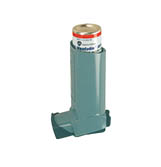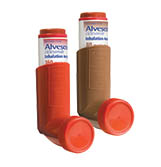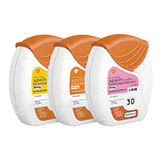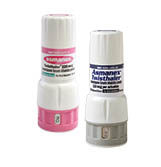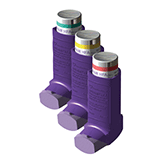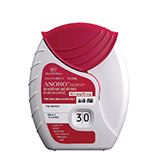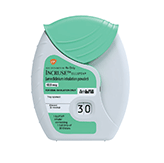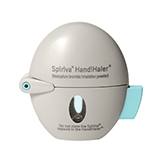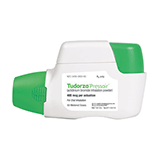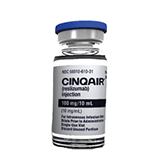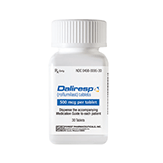What if I Can’t Afford My Asthma Medication?
- Home
- |
- What is Asthma?
- |
- Asthma Patient Assistance
Asthma inhalers and other types of respiratory medications vary in price.
Steps to help with asthma medication costs.
- Shop around
- Contact the medication manufacturer
- Discuss alternatives with your doctor
Some asthma medications are expensive while others are more affordable. Many are covered by health insurance, but this will depend on what type of insurance plan you have or if you have insurance at all.
It’s very important to use your asthma medications as prescribed. Ask your doctor for help you so you don’t go without taking your medication and your asthma symptoms worsen.
If you cannot afford the cost of your asthma medications, you can:
Shop around – at pharmacies and online.
Compare prices at other pharmacies or check prices at GoodRx, Singlecare, Medical Assistance Tool, Amazon Pharmacy, WebMDRx, and NeedyMeds.
In 2024, drug companies Boehringer Ingelheim and AstraZeneca voluntarily capped patient out-of-pocket costs for their inhaler products at $35 per month. In addition, AstraZeneca reduced the list price for Symbicort®.
Go generic.
Ask your doctor or pharmacist if a generic version of your prescription medication is available. Generics have the same active ingredients as brand-name asthma drugs, are equally as safe and effective, and cost less. Two membership-based online websites offer cost savings for generic medications:
- Amazon Prime members can obtain eligible generic medications for one flat fee of $5 per month through its Amazon Prime RxPass benefit.
- Mark Cuban CostPlus Drug Company offers a limited number of generic medications at cost to members. The company says it cuts out the many middlemen involved in the sale of prescription drugs and instead buys them directly from pharmaceutical companies and sells them almost at cost.
If a pharmacy doesn’t regularly stock a certain generic asthma medication, ask if it can be ordered for you at no additional cost.
Contact non-profit organizations that help uninsured and under-insured people
If you are uninsured or under-insured, non-profit organizations and foundations are available to help reduce financial barriers. Organizations that help uninsured people include NeedyMeds, RX Assist, RX Hope, Accessia Health, and Partnership for Prescription Assistance. Organizations that help the under-insured include the Healthwell Foundation and Patient Advocate Foundation.
You should never pay fees or provide your credit card information to any assistance program.
Compare total out-of-pocket cost from one asthma medication to another.
Sometimes prices of medications will vary. Depending on whether you have insurance that covers your prescription, switching to another device may save you money. Just remember: if you do switch asthma medications, learn how to use the new device since they all operate a bit differently. Read the package instructions and watch the training videos on the manufacturer’s website to familiarize yourself with proper use of the medication you bring home.
Contact the manufacturer for patient assistance programs.
Some pharmaceutical companies offer coupons, discounts and rebates.
Note: Teva is no longer offering patient assistance or coupon programs for the following medications: ProAir® Digihaler™, ProAir® RespiClick, ArmonAir™ Digihaler™, AirDuo® Digihaler™, AirDuo™ RespiClick® and QVAR® Redihaler™. If you want to contact Teva about these asthma inhalers, visit Teva’s website for Patient Assistance Programs or call 888-838-2872.
Use the list below to contact drug companies and find out about their patient assistance programs and discounts.
If you are still unable to afford the prescribed medication, talk with your doctor. It’s very important to take your medication as prescribed. Be sure to ask your doctor for help you so you don’t go without taking your asthma medication or other respiratory medication.
Short-acting beta2-agonist bronchodilators
Manufacturer: Merck
Contact:
855-257-3932
$15 off Out of Pocket Expense
Manufacturer: GSK
Contact:
888-825-5249
Long-acting beta2-agonist bronchodilators
 Brovana®
Brovana®
Manufacturer: Novartis
Website: https://www.novartis.com/us-en/patients-and-caregivers/patient-assistance
Contact: 888-669-6682
 Perforomist®
Perforomist®
Manufacturer: Viatris
Website: https://www.viatris.com/en-us/lm/united-states/patient-assistance-program
Patient Assistance Program Application: https://www.viatris.com/-/media/project/common/viatris/pdf/us/pap-medicine-drop-down/pap-app-cr-v4.pdf
Contact: 888-417-5780

Serevent® Diskus®
Manufacturer: GSK
Website: https://www.gskforyou.com/
Contact: 800-745-2967
Striverdi® Respimat®
Manufacturer: Boehringer Ingelheim
Website: https://www.boehringer-ingelheim.com/us/bi_cares_patient_assistance_program
Mail-in form to Boehringer Ingelheim Cares Foundation, Inc.: https://www.boehringer-ingelheim.com/us/sites/default/files/2023-02/primary-care-pap-application-fillable-pdf.pdf
Contact: 800-556-8317
Inhaled corticosteroids
Manufacturer: Covis
Website: https://www.alvesco.us/savings-card
Pay as little as $60.
Contact: 844-749-1023
Manufacturer: GSK
Website: https://www.gskforyou.com/
Contact:
800-745-2967
 Asmanex® HFA
Asmanex® HFA
Manufacturer: Organon (part of Merck)
Website: https://www.activatethecard.com/8043/#
Pay as little as $15 per prescription.
Contact: 800-727-5400
Asmanex® Twisthaler®
Manufacturer: Organon (part of Merck)
Website: https://www.activatethecard.com/8043/#
Pay as little as $15 per prescription.
Contact: 800-727-5400
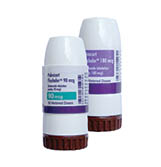 Pulmicort Flexhaler®
Pulmicort Flexhaler®
Manufacturer: AstraZeneca
Website: https://www.azandmeapp.com/prescriptionsavings/
Contact:
800-AZandMe (800-292-6363)
 Pulmicort Respules®
Pulmicort Respules®
Manufacturer: AstraZeneca
Website: https://www.azandmeapp.com/prescriptionsavings/
Contact: 800-AZandMe (800-292-6363)
Combination Medications
Manufacturer: GSK
Website: https://www.gskforyou.com/
Contact:
800-745-2967
Manufacturer: GSK
Website: https://www.gskforyou.com/
Contact:
800-745-2967
 Breo® Ellipta®
Breo® Ellipta®
Manufacturer: GSK
Website: https://www.gskforyou.com/
Contact:
800-745-2967
 Breyna™
Breyna™
Manufacturer: Viatris
Website: https://www.viatris.com/en-us/lm/united-states/patient-assistance-program
Patient Assistance Program Application: https://www.viatris.com/-/media/project/common/viatris/pdf/us/pap-medicine-drop-down/pap-app-cr-v4.pdf
Contact: 888-417-570
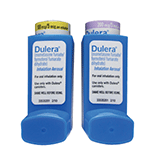 Dulera®
Dulera®
Manufacturer: Merck
Website: https://www.dulera.com/savings-offer/
Eligible patients pay as little as $15.
Contact: 800-727-5400
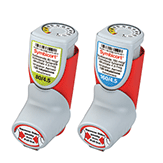 Symbicort®
Symbicort®
Manufacturer: AstraZeneca
Website: https://www.azandmeapp.com/prescriptionsavings/
Contact:
800-AZandMe (800-292-6363)
 Wixela™ Inhub™
Wixela™ Inhub™
Manufacturer: Viatris
Website: https://www.viatris.com/en-us/lm/united-states/patient-assistance-program
Patient Assistance Program Application: https://www.viatris.com/-/media/project/common/viatris/pdf/us/pap-medicine-drop-down/pap-app-cr-v4.pdf
Contact: 888-417-5780
Manufacturer: GSK
Website: https://www.gskforyou.com/
Contact:
800-745-2967
Manufacturer: AstraZeneca
Website: https://www.bevespiaerosphere.com/patient-assistance-and-savings.html
Eligible commercially insured patients may pay as low as $0 per month.
Contact: 844-327-3401
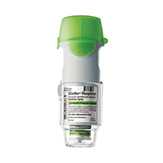 Stiolto™ Respimat®
Stiolto™ Respimat®
Manufacturer: Boehringer Ingelheim
Website: https://patient.boehringer-ingelheim.com/us/products/stiolto/savings-and-support/sign-up-for-savings
Eligible patients pay as little as $0.
Contact: 844-449-4704
 Trelegy® Ellipta®
Trelegy® Ellipta®
Manufacturer: GSK
Website: https://www.trelegy.com/savings-and-coupons/
Eligible patients pay as little as $0.
Contact: 888-825-5249
 Breztri Aerosphere®
Breztri Aerosphere®
Manufacturer: AstraZeneca
Website for BREZTRI Zero Pay: https://www.breztri.com/savings-support/zero-pay-program
Savings card: Eligible people pay as little as $0 per month.
Contact: 833-458-0440
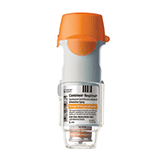 Combivent® Respimat®
Combivent® Respimat®
Manufacturer: Boehringer Ingelheim
Website for Savings Card: https://patient.boehringer-ingelheim.com/us/combivent/savings-support
Eligible patients pay as little as $10.
Contact: 800-867-1052
 AirSupra®
AirSupra®
Manufacturer: AstraZeneca
Website: https://www.azhelps.com/content/dam/website-services/us/293-azhelps-com/pdf/airsupra-savingcard.pdf
Savings card: Eligible people pay as little as $0* per month.
Contact: 866-480-0030
Muscarinic antagonist (anticholinergic) bronchodilators
Manufacturer: Boehringer Ingelheim
Website: https://www.boehringer-ingelheim.com/us/bi_cares_patient_assistance_program
Mail-in form to Boehringer Ingelheim Cares Foundation, Inc.: https://www.boehringer-ingelheim.com/us/sites/default/files/2023-02/primary-care-pap-application-fillable-pdf.pdf
Contact: 800-556-8317
Manufacturer: GSK
Website: https://www.gskforyou.com/
Contact:
800-745-2967
Manufacturer: Boehringer Ingelheim
Website: https://www.boehringer-ingelheim.com/us/bi_cares_patient_assistance_program
Mail-in form to Boehringer Ingelheim Cares Foundation, Inc.: https://www.boehringer-ingelheim.com/us/sites/default/files/2023-02/primary-care-pap-application-fillable-pdf.pdf
Contact: 800-556-8317
 Spiriva® Respimat®
Spiriva® Respimat®
Manufacturer: Boehringer Ingelheim
Website: https://www.boehringer-ingelheim.com/us/bi_cares_patient_assistance_program
Mail-in form to Boehringer Ingelheim Cares Foundation, Inc.: https://www.boehringer-ingelheim.com/us/sites/default/files/2023-02/primary-care-pap-application-fillable-pdf.pdf
Contact: 800-556-8317
Manufacturer: AstraZeneca
Website: https://www.tudorza.com/savings-program.html
Eligible patients pay as little as $0.
Contact: 844-749-1023
 Yupelri®
Yupelri®
Manufacturer: Viatris
Website: https://www.viatris.com/en-us/lm/united-states/patient-assistance-program
Patient Assistance Program Application: https://www.viatris.com/-/media/project/common/viatris/pdf/us/pap-medicine-drop-down/pap-app-cr-v4.pdf
Contact: 866-255-9018
Biologics (Severe Asthma Treatments)
Manufacturer: Teva
Website: https://www.tevasupportsolutions.com/patients/financial-assistance/
Contact: 877-237-4881
 Dupixent
Dupixent
Manufacturer: Sanofi and Regeneron
Website: https://www.dupixenthcp.com/patient-support/dupixent-myway
Contact:
844-387-4936
 Fasenra
Fasenra
Manufacturer: AstraZeneca
Website: https://www.fasenra.com/savings-support
Eligible patients pay as little as $0.
Contact: 833-360-4357
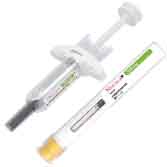 Nucala
Nucala
Manufacturer: GSK
Website: https://www.nucala.com/severe-asthma/steps-to-start/coverage-options/index.html
$0 co-pay program.
Contact: 844-468-2252
 Tezspire™
Tezspire™
Manufacturer: AstraZeneca
Website: https://www.tezspire.com/savings-and-support.html
Eligible patients pay as little as $0.
Contact: 888-897-7473
 Xolair
Xolair
Manufacturer: Genentech Novartis
Website: https://www.xolair.com/allergic-asthma/financial-support/assistance-options.html
Includes Xolair co-pay program; Independent Co-pay Assistance Foundations; The Genentech® Access to Care Foundation (GATCF)
Contact: 866-422-2377
PDE4 Inhibitors
Manufacturer: AstraZeneca
Website: https://www.daliresp.com/savings-program.html
$25 savings program.
Contact: 866-459-2015
Leukotriene Modifiers
 Singulair®
Singulair®
Manufacturer: Merck
Website: https://www.merckhelps.com
Contact: 855-257-3932

Need help managing your asthma?
Get a FREE Lung Coach ➤
How do I monitor my daily asthma symptoms?
National asthma guidelines suggest using a daily symptom diary. This could be Allergy & Asthma Network’s AsthmaTracker™. It helps you keep track of symptoms, peak expiratory flow rates, and medications used.
What is an AsthmaTracker?
The AsthmaTracker™ can help you track how well your symptoms respond to your treatment plan. You write down your symptoms, peak expiratory flow rate and medication use each day. This will help you notice a pattern to your symptoms. With this you can develop strategies to stop the symptoms before they can stop you.
Are there other conditions that may look like asthma or complicate asthma?
There are other types of respiratory conditions that are different than asthma. The symptoms, diagnosis and treatment can vary depending upon the condition. Here are some of them.
See Related Pages
- Asthma Attack
- Asthma Camp
- Alternative and Natural Asthma Treatments
- Asthma Symptoms & Triggers
- Asthma Medication and Treatment
- Asthma Diagnosis and Testing
- Lifestyle Changes to Manage Asthma
- Asthma Management and Control
- Asthma Patient Assistance
- Asthma Action Plan
- What is Severe Asthma?
- Asthma and Exercise
- Asthma in Babies and Children
- Asthma and Pregnancy
- Vaping and Smoking with Asthma
- Asthma Dictionary
- Asthma Statistics
- Asthma Webinars
- Ask the Allergist About Asthma


